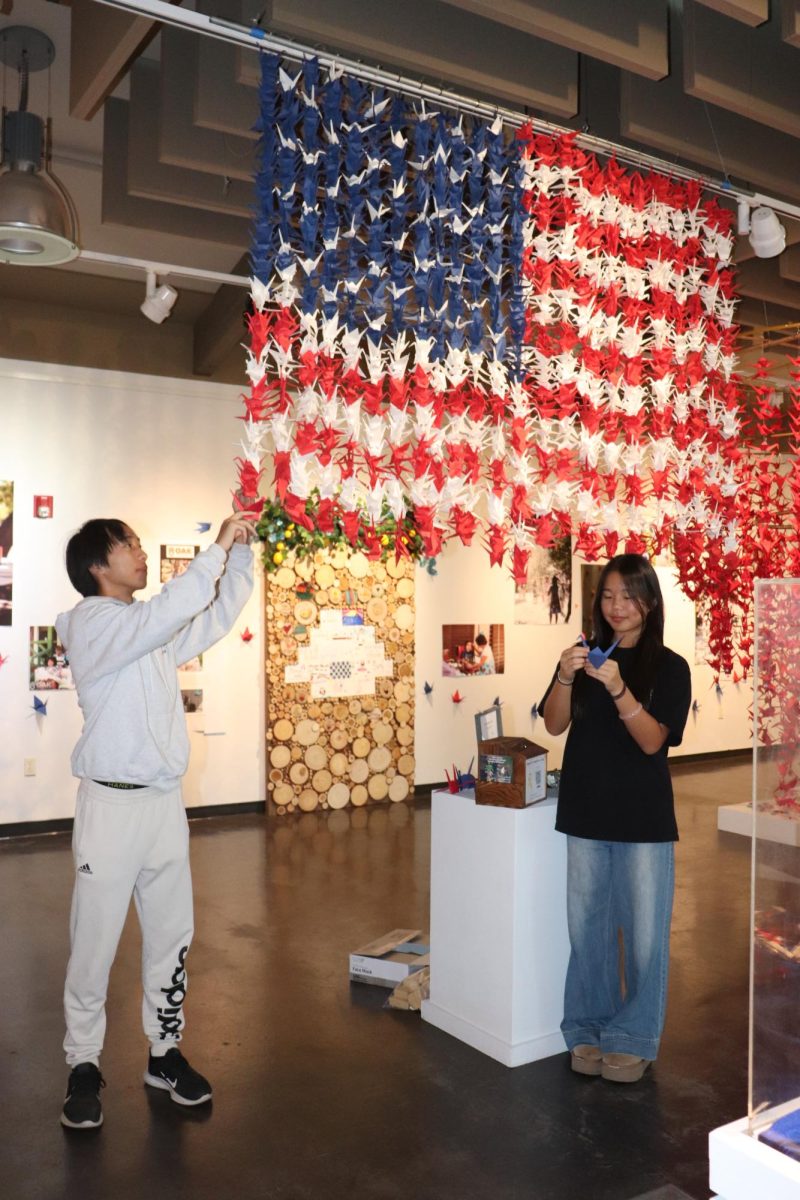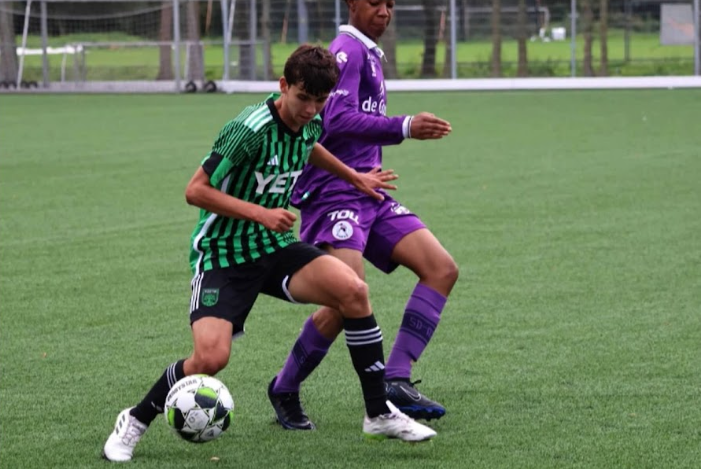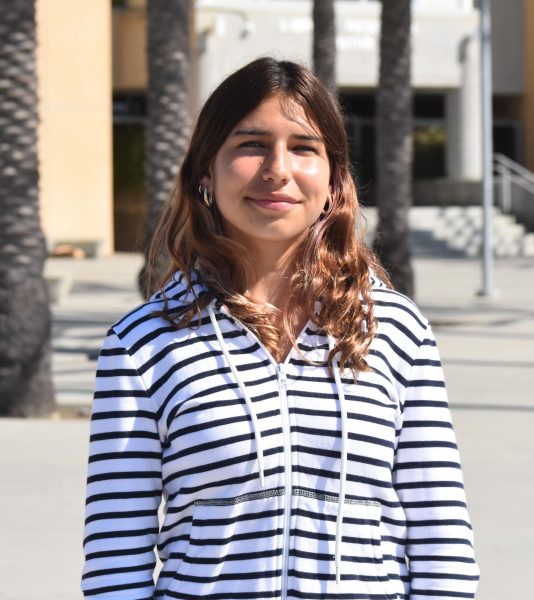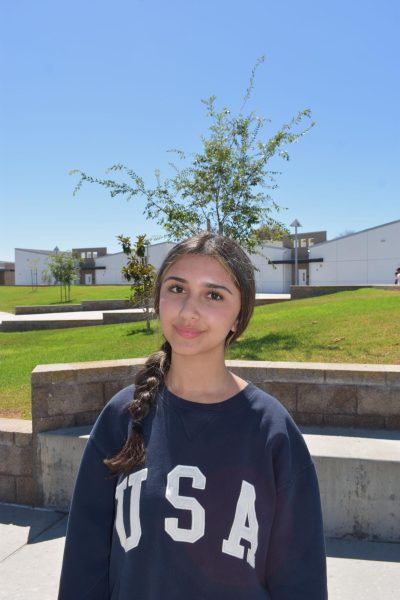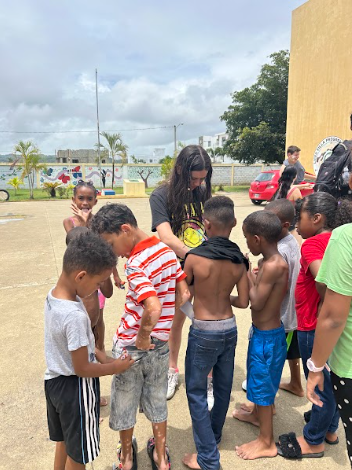
Performing acts of service, kindness, and charity to repair the world through equality and justice is a fundamental Jewish concept called Tikkun Olam. This concept is taught throughout the Jewish community in synagogues, camps, and education centers. For Harper Schwartz (11), Jamie Peller (11), and Alexis Ostrow (11), this belief is a central part of their Jewish summer camp, Camp Mountain Chai.
Schwartz, Peller, and Ostrow traveled with their camp to Cabarete in the Dominican Republic for a summer trip along with 25 other students, June 22-July 11. The camp partnered with Cambio Trips, a program focused on cultural and service-learning experiences within the Dominican Republic, to plan a volunteer trip centered around the concept Tikkun Olam.
“It was a big opportunity because a big part of Judaism is giving back,” Schwartz said. “For our camp, [the trip] was like a service to [give] back to our community.”
Over the course of four weeks, the group volunteered on weekdays at a local school called Montessori Preschool La Libertad to teach children English. At the school, the camp members were in charge of planning and supervising the activities for the day. Throughout the four weeks, the group taught the students with engaging and educational lessons to help them learn the basics of English.
“We got to make the activities and plan [them] out, so it was really fun,” Schwartz said. “A lot of the kids were little, so we played games like Duck Duck Goose, [and] after we taught them different animals [in English]. We [also] did this one game where we put up English words on the board, and then we said what the word was in Spanish, and they would have to hit the word in English with a stick. We just did different games like that to teach them basic speaking in English [and] to help them improve their vocabulary.
Over the weekends, they explored the beautiful environment and culture of the Dominican Republic by relaxing along the Caribbean Sea or observing wildlife in the rainforest.
“We participated in many different activities, for example, the days we weren’t working [at the school], we would go zip lining, see the rainforest, or enjoy the beach,” Schwartz said. “Besides going to school, we met the locals from the town because we stayed in a small part [of] the north coast of the Dominican Republic called Cabarete, and we really connected with the locals and met a bunch of new friends.”
While volunteering at the school, some of the camp members faced difficulties with the language barrier. Even though the children were the ones learning a new language, Peller said she was also able to learn a little bit of Spanish through connecting with the kids.
“For [me], it was very difficult to communicate with the children, especially since I didn’t know Spanish,” Peller said. “[But] I had the experience of learning Spanish in the country. The kids were teaching me Spanish, as I was also teaching them English.”
While the language barrier seemed challenging at first, the camp members were able to unlock a deeper connection with the students despite it. Schwartz said that their differences didn’t matter, as they were all having fun together.
“The best experience was the last day of teaching at the school, where we had a day about America,” Schwartz said. “At the end, we had a water balloon fight, [and] although it was very humid, none of us cared, and we had so much fun. Even though many people didn’t speak Spanish, we felt we could all understand each other at this level and have so much fun.”
Peller said that the bonds formed with the kids made the experience special.
“For me, I felt like participating and helping the people at the school was my favorite since you really create this [special] type of bond with the kids,” Peller said. “You get to learn about them and their personalities there. Every single day there, I genuinely felt like we always looked forward to going to school because of how close we got to the kids.”
The trip pushed Peller to explore new connections and cultures with different people. She was introduced to unique tastes, beliefs, and ways of life. She said that these new experiences allowed her to widen her perspective and explore the diversity of the Dominican Republic.
“Normally, when I travel, I don’t go deep into the culture,” Peller said. “I’m [usually] at a hotel or traveling around to different places, but on [this trip], I actually got to experience it because I was there for a long time. I got to experience how they live, [the] foods they eat, and what they do for fun. We just learned about the culture there, and for [me] it was the best part of it.”
Throughout her trip, Schwartz gained insight into the cultural and social differences of other countries through her summer voyage. She said she learned about new perspectives and felt that the impact she was able to make through volunteering was valuable to her.
“It really helped me understand the differences [between] people and how we have to change our perspective on things,” Schwartz said. “I learned that the kids of the Dominican Republic aren’t given the same opportunities that we have here in the States, and school in the United States seems like a chore, but [in] the Dominican Republic, it’s a privilege. I hope one day that I will be able to go back and see the same kids that I saw there. Making an impact there meant so much to [me] and I was so glad to have been able to help.”


